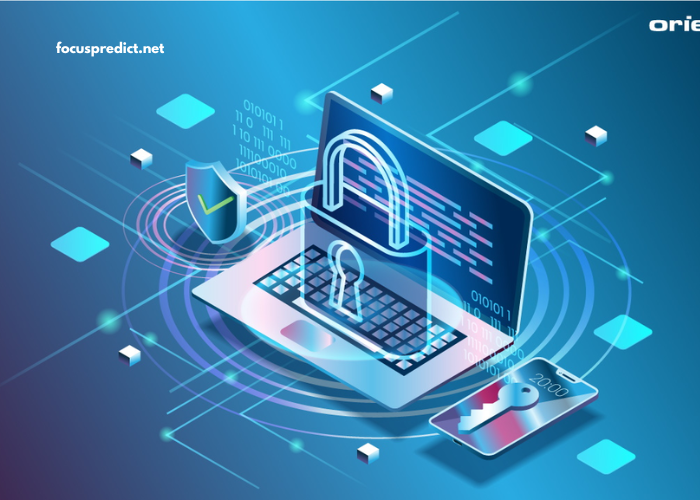In today’s digital age, where the internet is an integral part of our daily lives, the importance of cybersecurity cannot be overstated. With everything from shopping, banking, and work to socializing and learning now conducted online, ensuring a safe online experience is vital. Cyber threats, such as hacking, identity theft, and malware, continue to evolve, making it essential for individuals to stay vigilant and informed about how to protect themselves. In this article, we will explore practical and effective cybersecurity tips for securing your online presence and enjoying a safe browsing experience.
Understanding the Importance of Cybersecurity
Before diving into tips and best practices, it’s crucial to understand why cybersecurity is essential in the first place. Cybersecurity refers to the protection of systems, networks, and data from digital attacks, theft, and damage. A breach can lead to the loss of sensitive information, financial loss, and even reputational harm. With the rise of sophisticated cyber-attacks, everyone, from individuals to businesses, needs to take proactive steps to safeguard their online activities.
Basic Cyber Hygiene: Strong Passwords and Multi-Factor Authentication
Use Strong, Unique Passwords
One of the most basic yet essential practices for maintaining cybersecurity is using strong passwords. A strong password typically includes a combination of uppercase and lowercase letters, numbers, and symbols. It’s also crucial that you avoid using easily guessable information like your name, birthdate, or common words.
Don’t Reuse Passwords
Using the same password for multiple accounts is a significant security risk. If one account is compromised, all others using the same password become vulnerable. To avoid this, create unique passwords for each of your accounts and consider using a password manager to keep track of them.
Enable Multi-Factor Authentication (MFA)
Multi-factor authentication adds an extra layer of security to your online accounts. Instead of relying on just a password, MFA requires users to provide a second form of verification, such as a text message code, an authentication app, or even biometric data like fingerprints or facial recognition. This significantly reduces the chances of an unauthorized person gaining access to your account, even if they have your password.
Keep Software and Devices Updated
Regular Software Updates
Cybercriminals often exploit vulnerabilities in outdated software to launch attacks. To minimize this risk, ensure that your operating system, browsers, apps, and other software are regularly updated with the latest security patches. These updates fix known vulnerabilities and help protect you from emerging threats.
Update Device Firmware and Hardware
In addition to software, don’t forget to keep your device’s firmware and hardware updated. Whether it’s your smartphone, laptop, or Wi-Fi router, regularly check for firmware updates. These updates often include essential security fixes that can protect you from hackers and malware.
Beware of Phishing Scams
What is Phishing?
Phishing is a type of cyber-attack in which attackers impersonate legitimate organizations to trick you into revealing sensitive information like passwords, credit card numbers, or social security numbers. These attacks are typically carried out via email, text messages, or social media platforms.
How to Spot Phishing Attempts
Phishing emails and messages often contain red flags, such as misspelled words, suspicious sender addresses, or requests for sensitive information. Always scrutinize the source of the message and avoid clicking on any suspicious links or attachments. If you’re unsure about the legitimacy of a message, it’s best to contact the organization directly using a verified phone number or website.
Stay Suspicious of Unsolicited Requests
Never respond to unsolicited emails or messages asking for personal information, especially if you did not initiate the conversation. Legitimate companies will rarely ask for sensitive details via email or text. If you receive such a request, it’s always better to reach out to the company directly through official channels.
Protect Your Wi-Fi Network
Secure Your Wi-Fi Router
Your Wi-Fi router is the gateway to your online world, and if it’s not secure, it can be a point of entry for cybercriminals. Make sure that your router is protected with a strong password and encryption. You should also change the default router credentials, as these are often easy for attackers to guess.
Use a VPN (Virtual Private Network)
A Virtual Private Network (VPN) is an excellent tool for enhancing your online privacy. A VPN encrypts your internet traffic, making it much harder for hackers, third parties, or even your internet service provider to track your online activities. When using public Wi-Fi networks, a VPN can be especially helpful in protecting your sensitive data.
Disable Remote Access
If you don’t need remote access to your Wi-Fi router, it’s a good idea to disable this feature. This can prevent hackers from exploiting vulnerabilities that could allow them to access your network from outside your home or office.
Be Cautious with Public Wi-Fi
Risks of Public Wi-Fi
Public Wi-Fi networks, such as those in cafes, airports, and hotels, are convenient but also highly vulnerable to cyber-attacks. Hackers can easily intercept data on unsecured public networks, putting your personal information at risk.
How to Stay Safe on Public Wi-Fi
If you must use public Wi-Fi, make sure you’re connected to a legitimate network. Avoid performing sensitive activities, like online banking or shopping, while on public Wi-Fi. As mentioned earlier, using a VPN can significantly improve your security when connected to public networks.
Regularly Back Up Your Data
Why Backing Up Is Crucial
Regularly backing up your data is one of the best ways to safeguard against data loss caused by cyber-attacks, hardware failure, or accidental deletion. It ensures that even if your device is compromised, you won’t lose your valuable information, such as photos, documents, or work files.
How to Back Up Your Data
You can back up your data to an external hard drive, cloud storage services, or a combination of both. Cloud storage is particularly convenient because it automatically backs up your data and makes it accessible from anywhere, but make sure you choose a reputable provider with strong security measures in place.
Use Antivirus and Anti-Malware Software
What is Antivirus Software?
Antivirus software helps detect and remove harmful programs, such as viruses, worms, and trojans, that may infect your devices. In addition to preventing attacks, antivirus programs can often block harmful websites and emails, helping to protect your online experience.
How to Keep Your Antivirus Up to Date
Make sure that your antivirus software is always up to date with the latest virus definitions and patches. This ensures that the software can detect and block the newest threats. Many antivirus programs offer real-time scanning to catch potential risks before they can cause harm.
Monitor Your Online Presence
Regularly Review Your Social Media Accounts
Oversharing personal information on social media can put you at risk for identity theft and other cybercrimes. Regularly review your privacy settings and remove any personal details that aren’t necessary for your online presence. Additionally, consider using a pseudonym or alias for online platforms where you don’t need to use your real name.
Be Mindful of What You Share
Even seemingly innocent posts can provide cybercriminals with enough information to steal your identity or target you with personalized attacks. Be cautious when sharing personal details, such as your location, phone number, or daily routines.
Monitor Financial Transactions
Keep an eye on your bank and credit card accounts for any unusual activity. Set up alerts to be notified of transactions and review statements regularly. If you notice any discrepancies or suspicious charges, report them immediately to your financial institution.
Conclusion
By implementing these cybersecurity tips and staying vigilant, you can significantly reduce the risk of falling victim to cyber-attacks and enjoy a safer online experience. Cybersecurity is not a one-time effort but an ongoing practice that requires continuous attention. As cyber threats continue to evolve, it’s essential to stay informed about the latest security trends and best practices to protect yourself, your personal data, and your online reputation.
Taking simple steps like using strong passwords, enabling multi-factor authentication, and being cautious with public Wi-Fi networks can make a world of difference. In an increasingly digital world, these cybersecurity tips will help ensure that your online presence remains secure.




